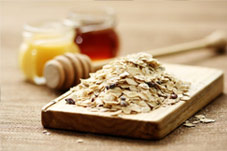
7 Natural Aids That Work To Improve Sleep
Not everybody is blessed with good sleep. While some people can pass out right when they hit the pillow, other people find themselves agonizingly awake as they lie in bed listless, anxious, and bored. And when they wake up in the morning, they're groggy, exhausted, and barely able to start the day. Sleep is a crucial part of our lives, where our body can have time to heal itself and replenish energy. Without it,
But can't you just make yourself sleep? Well, if you want to do things safely and naturally, you really can't. Trying to sleep can have the opposite effect, and the added pressure and anxiety can cause you to have an even harder time falling asleep than you did before! And many people have a problem with chemical sleep aids like melatonin supplements, which, though they can be effective, can have pretty bad side effects. Some people who take these aids spend the next day feeling tired and half-asleep, so it doesn't seem worth it.
The good news is that there are natural sleep aids that can work safely and healthily with our bodies, products that can help our bodies go to sleep (instead of just knocking us out).
Calcium: People all know the old remedy for insomnia: a glass of warm milk before bed. But why milk? Because it's a great source of calcium, which contains tryptophan. This is an amino acid which promotes the natural production of melatonin, the hormone that makes us fall asleep. It can also help you stay asleep longer. Lower calcium levels are associated with frequent waking and a lack of REM sleep, which means more calcium will not only help you fall asleep, it'll keep you asleep so that your body can rest.
Passionflower: This flower is used in homeopathic medicine for its ability to lower stress levels, as well as its power to promote relaxation and sleep. Some of the active properties in it have been compared to oxazepam, a product used to reduce anxiety in people with generalized anxiety disorder (or GAD). Passionflower increases gamma aminobutyric acid (GABA), a chemical that calms the neurons responsible for anxiety and lowers blood pressure, which can help calm people enough to get them to sleep. Passionflower can be prepared in tea-form, but its extract can also be taken directly.
Valerian Root: A plant which has been used for its anti-anxiety properties for centuries, it has been tested in clinical trials for people with trouble sleeping. A few of them showed that people who took a certain amount before retiring fell asleep quicker, slept deeper, and woke up fewer times during the night.
Chamomile: A classic. This herb contains apigenin, a compound that reduces stress by directly affecting the neurons, allowing people to fall asleep easier. No need to take extracts or pills – try it the old-fashioned way as a gentle cup of tea before bed.
Magnesium: This common element is an important part of a healthy diet, and it has been found to contribute to good restful sleep. It does this by assisting in cellular reactions and making sure neurotransmitters are working properly, leading to a balanced mind. It also has an effect on the amount of cortisol – the stress hormone – in your blood, and can help to relax the muscles.
Turkey: That food coma after Thanksgiving dinner isn't just because you gorged yourself. Turkey contains good amounts of tryptophan, just like calcium, and helps stimulate more production of melatonin for an easier time of falling asleep. It also promotes secretion of serotonin which reduces anxiety, regulates the mood, and has an effect on the brain's sleep receptors.
St. John's Wort: A plant found throughout the United States and Europe, it has been used as a naturopathic way to treat depression and other mood problems, but that's not all it can do. It is also supposed to be able to stimulate the GABA receptor in the brain for improved relaxation and easier sleep. And, like turkey, it can help to increase the amount of serotonin in the body.
Chronic sleeping problems could be a sign of a chemical or psychological imbalance, which should be checked out by a medical professional. But if you're just having a tough time getting to sleep, or you wake up so much that you can't stay asleep long enough to really rest, you might want to look into some of the above options to help you finally get the much-needed rest you deserve.